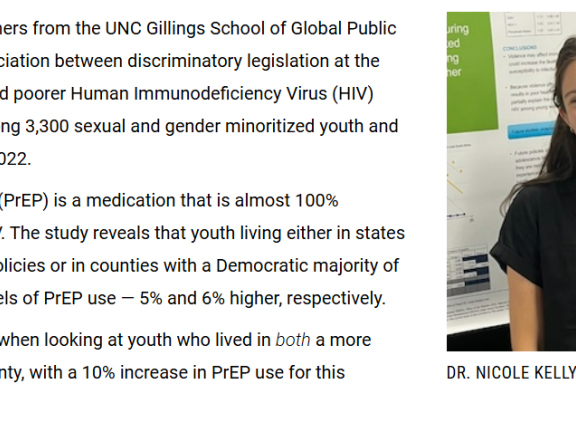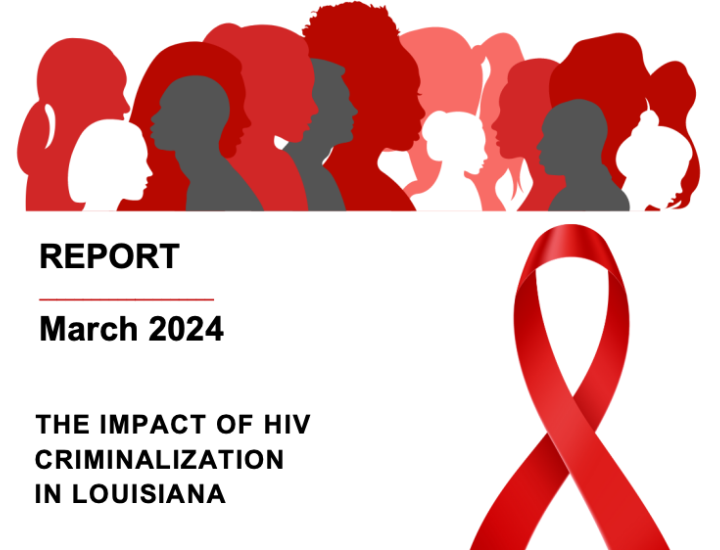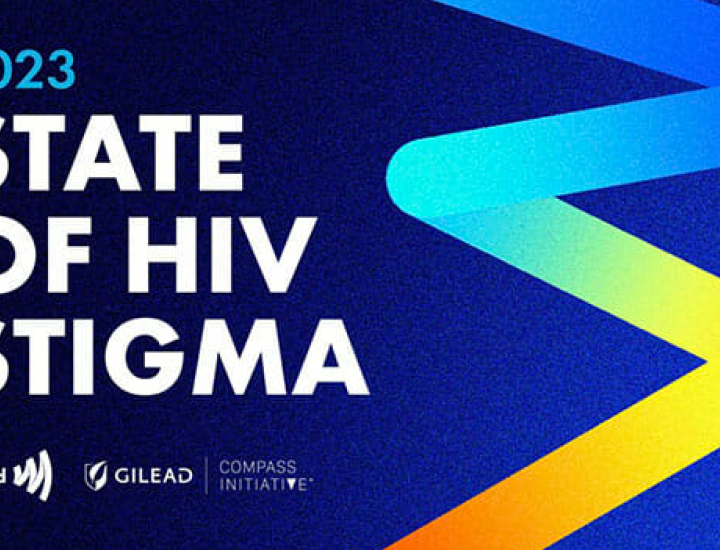Published October, 2024
The relationship between anti-LGBTQ+ legislation and HIV prevention among sexual and gender minoritized youth, Kelly et al. (2024)

With more than 500 anti-lesbian, gay, bisexual, transgender or queer (LGBTQ+) bills introduced in the United States in 2024 alone, understanding the public health impact of this legislation is essential.
A recent study by researchers from the UNC Gillings School of Global Public Health found a clear association between discriminatory legislation at the state and county levels and poorer Human Immunodeficiency Virus (HIV) prevention outcomes among 3,300 sexual and gender minoritized youth and young adults from 2017-2022.
Pre-exposure prophylaxis (PrEP) is a medication that is almost 100% effective at preventing HIV. The study reveals that youth living either in states with fewer anti-LGBTQ+ policies or in counties with a Democratic majority of voters reported higher levels of PrEP use — 5% and 6% higher, respectively.
These impacts expanded when looking at youth who lived in both a more progressive state and county, with a 10% increase in PrEP use for this population.
The researchers point out that anti-LGBTQ+ policies potentially interfere with HIV prevention through two different pathways: increasing stigma (at the structural, interpersonal and individual levels) and decreasing healthcare access.
Stigma has long been associated with poor-HIV related outcomes, as individuals with low self-worth may find it more difficult to proactively seek out HIV prevention and treatment resources. Alternatively, individuals who do seek these services may encounter increased discrimination from health care providers. Legislation, meanwhile, can affect access both directly and indirectly by establishing barriers to HIV-related health care.
“LGBTQ+ youth living in states with more discriminatory, anti-LGBTQ+ policies had lower levels of PrEP use,” said first author Nicole Kelly (PhD ‘24, epidemiology), a recent graduate of the Gillings School. “PrEP is essential to ending the HIV epidemic, and these discriminatory laws may be limiting PrEP use on a national level.”
The research findings come at an opportune time, as the US is experiencing both an unprecedented level of anti-LGBTQ+ policies and a growing population of LGBTQ+ individuals. In 2024, 7.6% of American adults identified as LGBTQ+.
Looking ahead to the future, Kelly says, “Ultimately, I’d like to see anti-LGBTQ+ legislation repealed and replaced with protective policies for youth. In addition to protecting human rights, this step could potentially boost PrEP use and, as a result, reduce population-level HIV transmission.”
Co-authors from the Gillings School include Associate Professor Shabbar Ranapurwala, PhD, Professor Brian Wells Pence, PhD, Associate Professor Jaime Slaughter-Acey, PhD, and Professor Audrey Pettifor, PhD (senior author), all with the Department of Epidemiology.
Copyright Information: CHLP encourages the broad use and sharing of resources. Please credit CHLP when using these materials or their content. and do not alter, adapt or present as your work without prior permission from CHLP.
Legal Disclaimer: CHLP makes an effort to ensure legal information is correct and current, but the law is regularly changing, and the accuracy of the information provided cannot be guaranteed. The legal information in a given resource may not be applicable to all situations and is not—and should not be relied upon—as a substitute for legal advice.


